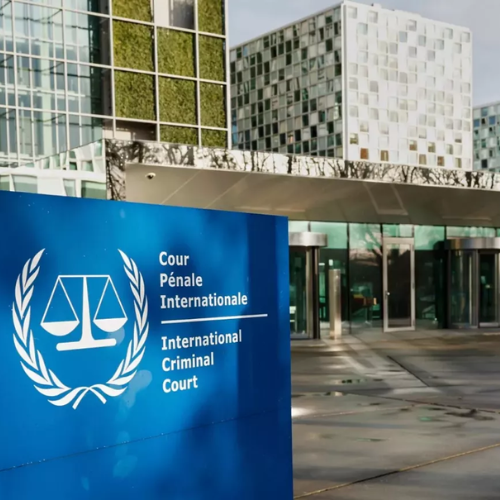The International Criminal Court (ICC), based in The Hague, is facing serious trouble after the United States placed heavy sanctions on its staff. These sanctions are not just hurting the people who work there, but are also affecting the court’s ability to do its job. The ICC was set up to look into serious crimes like war crimes and crimes against humanity. But now, its staff and work are being blocked by rules from the US.
The chief prosecutor of the ICC has reportedly lost access to his official email account and his personal bank accounts have been frozen. This means he cannot even use basic tools needed to work or live. US laws passed in January say that any person or group helping the ICC investigate people from the US or its allies — including a country like Israel — could also face punishment.
Even worse, the US has warned its citizens who work at the court that they could be arrested if they come back to America. That’s a very serious step. Because of this threat, some American staff have already stopped working with the ICC. Other non-governmental groups, such as charities and legal teams that usually help the court, have pulled back too. They are scared of being punished under these rules.
Secret Deals, Sanctioned Names: U.S. Reveals China-Iran Axis Building Weapons of Mass Destruction
How the Sanctions Work
The US sanctions go far beyond just freezing bank accounts. They block all types of support to the ICC. This includes giving money, technology, or even services to the court or its staff. That means if a company sends the court a laptop or software, or if a bank handles money transfers for court staff, they could also get into legal trouble in the US.
The order says that more than 900 staff members at the ICC could be affected. Anyone who gives them help, even just something small, could be fined or even sent to jail. These rules make it very risky for anyone to continue working with or supporting the court.
The person leading the court’s investigations is no longer allowed to enter the United States. This is important because global cooperation is a big part of how the ICC works. Without being able to travel or communicate freely, the staff are finding it difficult to carry out their missions.
The Wider Impact on The Hague and Beyond
The Netherlands, where the ICC is located, is also feeling the pressure. Since the court is based there, Dutch authorities help out with things like security, travel, and prisoner transport. Every person arrested by the ICC ends up in the Netherlands, so the country is closely connected to what the court does.
U.S. Accuses Russia of Sabotaging UN Sanctions to Fuel War With North Korea’s Missiles
Now that the US sanctions are in place, there is concern about how safe and smooth these operations can remain. Court officials have told reporters that these US actions are affecting more than just one case. Many investigations may now be slowed down or even stopped completely because of lack of support.
This isn’t the first time the US has used this kind of power. A few years ago, the US government also sanctioned other court staff who were looking into war crimes in Afghanistan. Those earlier actions set the stage for what is happening now.
The ICC and its leadership have not given official comments about the new sanctions, but the effects are clearly being felt. Workers at the court are unsure what they can or cannot do without risking serious punishment. International groups that usually help the court are stepping back. And the Netherlands, as the host country, is now facing more risk than before because it plays such a big role in helping the ICC.
What started as a legal move by one country is now making it much harder for the ICC to carry out its global work. As more people and groups pull away from helping, the court’s ability to investigate and hold people accountable for serious crimes is being weakened. This situation shows how political decisions can have a huge impact on international justice systems.


